Air Freshener Spray in Restroom CFD Simulation
$200.00 $100.00 Student Discount
- The problem numerically simulates Air Freshener Spray in the restroom using ANSYS Fluent software.
- We design the 3-D model by the Design Modeler software.
- We Mesh the model by ANSYS Meshing software, and the element number equals 1187006.
- We perform this simulation as unsteady (Transient).
- We use the Species Transport model to define 3 volumetric species.
- We use the discrete phase model (DPM) to define spraying air fresheners.
- We define an injection as the droplet that will be evaporated.
Click on Add To Cart and obtain the Geometry file, Mesh file, and a Comprehensive ANSYS Fluent Training Video.
To Order Your Project or benefit from a CFD consultation, contact our experts via email (info@mr-cfd.com), online support tab, or WhatsApp at +44 7443 197273.
There are some Free Products to check our service quality.
If you want the training video in another language instead of English, ask it via info@mr-cfd.com after you buy the product.
Description
Air Freshener Spray in Restroom CFD Simulation, Ansys Fluent Training
The present problem simulates the Air Freshener Spray in the restroom using ANSYS Fluent software. We perform this CFD project and investigate it by CFD analysis.
The present model is designed in three dimensions using Design Modeler software. The model’s geometry includes a computational domain of the interior of a restroom.
The meshing of this present model has been generated by Ansys Meshing software. The mesh grid is unstructured, and the curvature method was used to focus on grid-sensitive areas. The total cell number is 1187006.
Air Freshener Methodology
This project investigates the spraying of Air fresheners in the restroom by the Two-way DPM method in Ansys Fluent software. According to this definition of injection, fragrance particles are physically expelled from the device by water droplets that evaporate in space.
These droplets have a temperature of 310 K, a velocity of 50 m.s, and a mass flow of 0.018 kg.s-1, which are emitted at intervals of 0s to 0.1s. The particle diameter is not constant during diffusion, and the rosin-rambler-logarithmic distribution method is considered for the diameter of the Particles.
Following this method and the suitable formulation, the values related to the minimum, maximum and average diameter, the spread’s exponential parameter, and the number of diameters per injection are determined.
It should be noted that the drop mode is applied when the species transport model is also activated.
The boundary conditions of the discrete phase model at the output boundary of the device, the inlet, and the toilet’s outlet are defined by Escape mode, which means that the particles cross this boundary.
The Trap model is used at the boundaries of all walls and heaters, which means particles are trapped and collected on these surfaces. The present simulation process is performed unsteadily with time steps equal to 0.01 seconds.
Moreover, the RNG k-epsilon model and energy equation are enabled to solve the turbulent fluid equations and calculate temperature distribution within the domain.
Air Freshener Conclusion
At the end of the solution process, Observing the obtained results, we conclude that the heater in the restroom creates a suitable temperature for this place and causes the flow in the bathroom to rotate, in addition to causing the particles to evaporate.
Also, according to the attached animation, it can be seen that most particles with larger diameters are in a lower position than particles with smaller diameters due to higher mass and then evaporate.
Reviews
Related products
-
HAWT (Horizontal Axis Wind Turbine) ANSYS Fluent CFD Simulation Training
Rated 4.00 out of 5$140.00$70.00 Student Discount -
Cyclone by DPM ANSYS Fluent CFD Simulation Training
Rated 5.00 out of 5$120.00$60.00 Student Discount
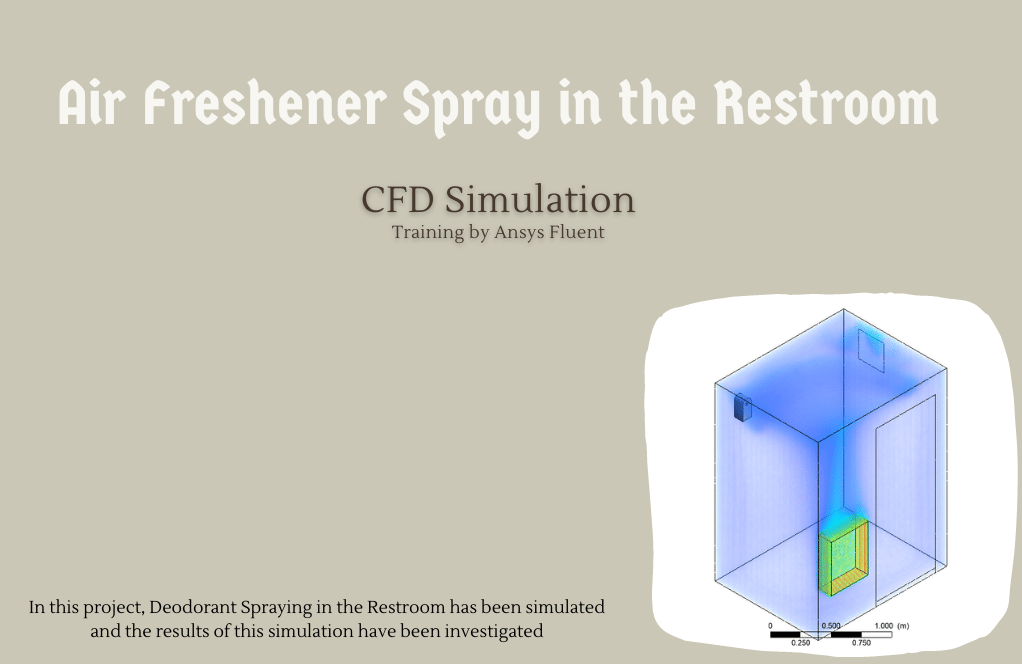

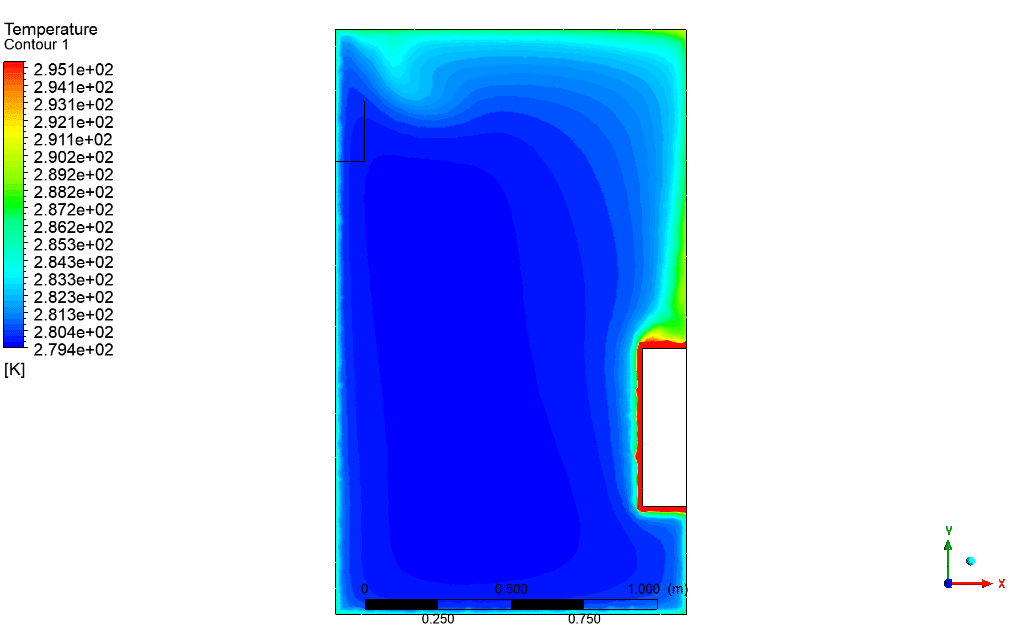
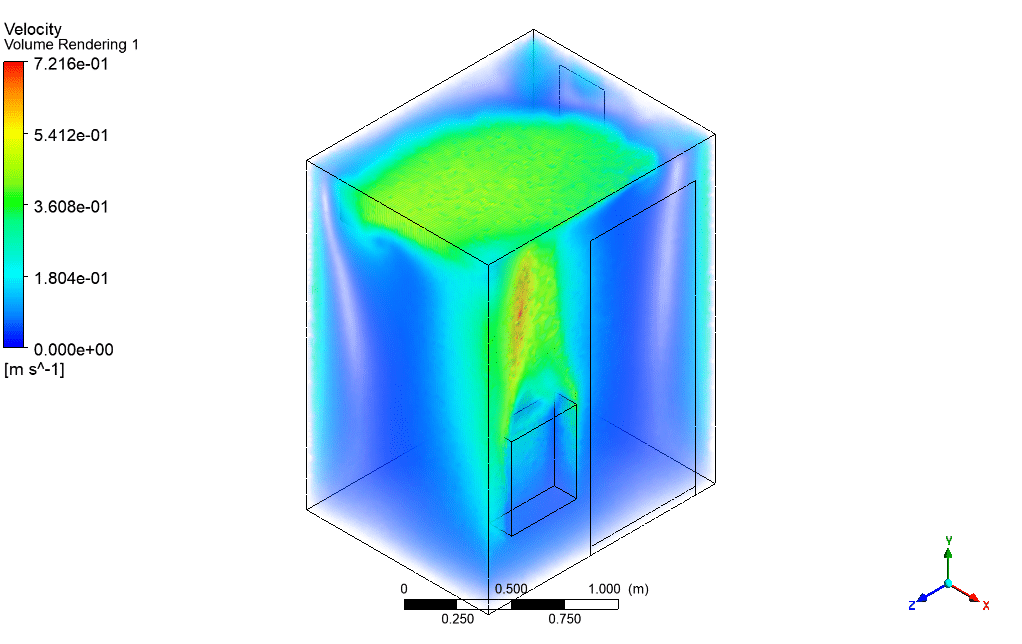

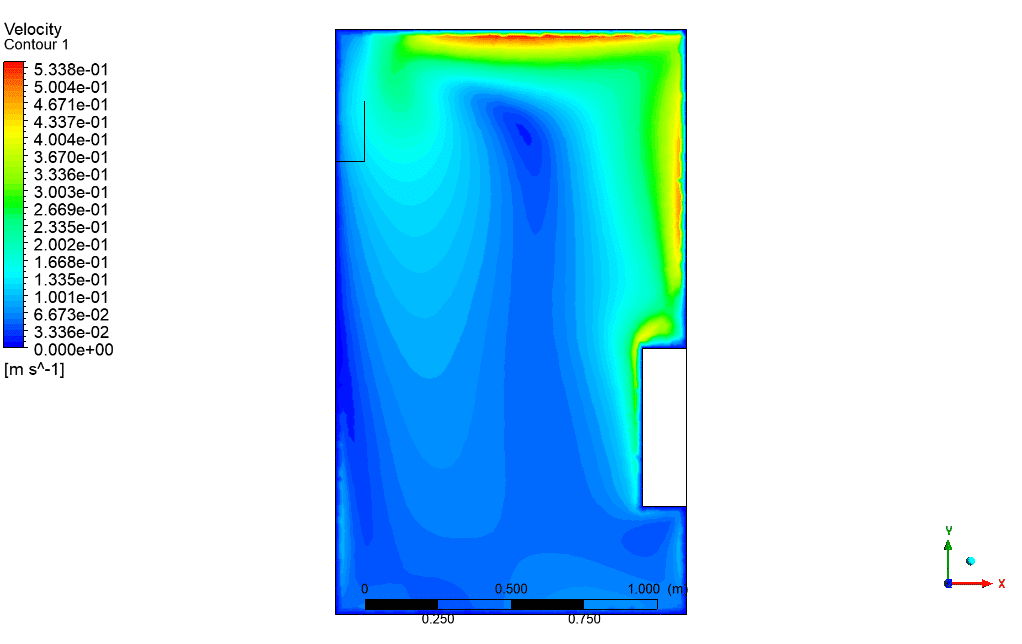
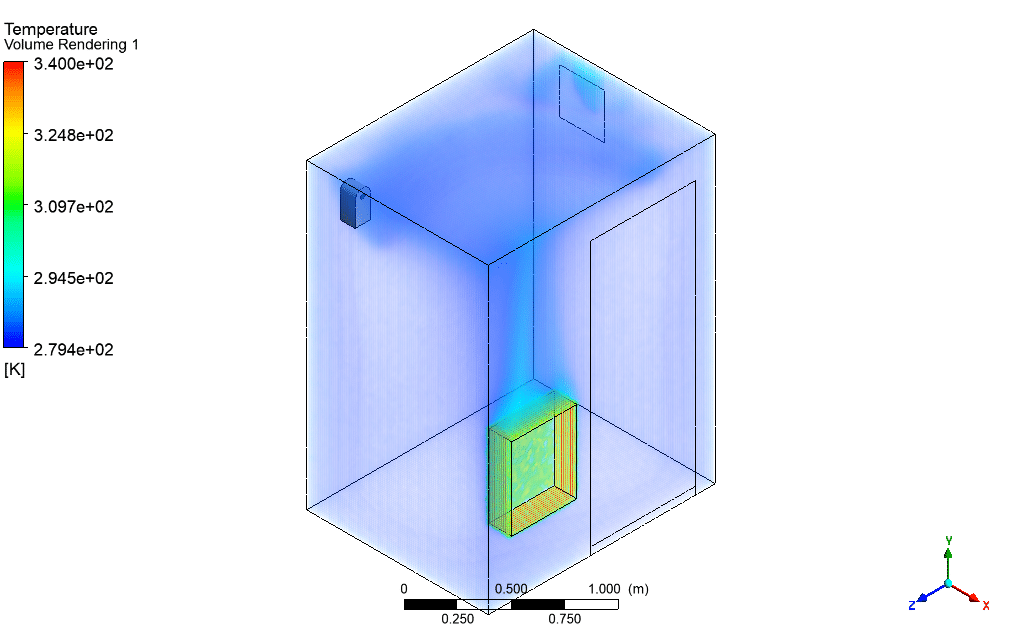

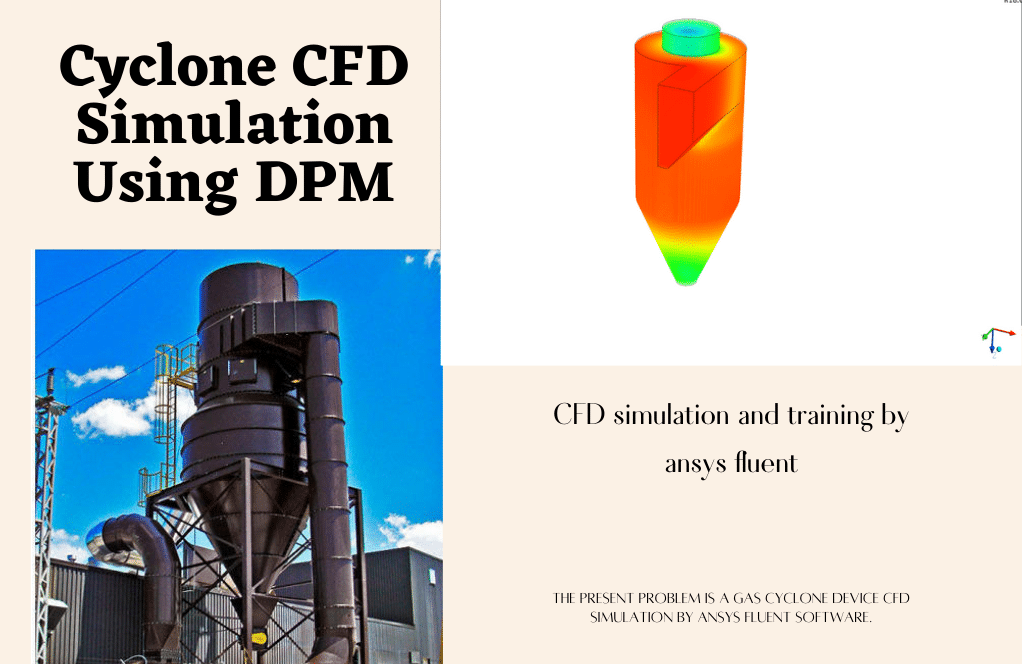


Mrs. Caroline Medhurst –
I’m very pleased with the Air Freshener Spray simulation training. It is comprehensive and the visual aids, especially the animations, were quite helpful to understand the particle behavior. The results clearly showed the effectiveness of the heater in particle distribution too!
MR CFD Support –
We’re thrilled to hear that you found our Air Freshener Spray simulation training to be comprehensive and helpful! Thank you for pointing out the effectiveness of the animations in demonstrating particle behavior. We appreciate your feedback and are glad that the simulation results were beneficial for your understanding. If you have any more questions or need further assistance, feel free to reach out. Thank you for choosing our product!
Lura Wintheiser –
I am delighted with the level of detail in the Air Freshener Spray in Restroom CFD Simulation product. The distribution of droplets and the immersive visualization through animation were quite insightful for understanding the spray dispersion and evaporation mechanism, which is crucial for ensuring for uniform scent distribution.
MR CFD Support –
Thank you so much for taking the time to leave your positive feedback. We’re thrilled to hear that the simulation met your expectations and provided valuable insights. If you ever have more questions about our products or need further assistance, don’t hesitate to reach out!
Mr. Demarco Greenholt II –
This CFD simulation was quite insightful, especially since it considered the evaporation of fragrance particles – a critical aspect of an air freshener’s effectiveness. Very impressed with how the simulation captured the particle dynamics in the restroom space!
MR CFD Support –
Thank you for your positive feedback! We’re thrilled to hear that you found the simulation useful and that it met your expectations in determining the effectiveness of the air freshener spray. If you have any further questions or need more insights on CFD simulations, please feel free to reach out.
Van Mraz –
The realism and depth of the analysis are superb. Your product paints a comprehensive picture of air freshener distribution in a restroom, assessing effects such as evaporation and particle behavior with precision. It has the potential to be an invaluable tool for optimizing environmental conditions in public restrooms.
MR CFD Support –
Thank you for your kind words! We are thrilled to hear that our Air Freshener Spray in Restroom CFD Simulation met your expectations. It is our constant aim to provide detailed and practical analyses through our CFD projects. If there’s anything more we can do to assist, please let us know!
Dr. Edward Yost DVM –
I’m quite amazed at how the simulation captures the effect of the heater on particle distribution and evaporation. It’s impressive to see the impact of temperature on air freshener distribution in a small space like a bathroom!
MR CFD Support –
Thank you so much for your kind words! We are delighted to hear that our simulation of the Air Freshener Spray in a Restroom met your expectations and provided valuable insights into the influence of temperature and airflow on particle behavior. Your satisfaction is our top priority, and we appreciate your recognition of our efforts.
Broderick Davis –
I’m extremely impressed with the level of detail in the simulation of the air freshener spray in a restroom. The thoroughness in the methodology ensuring the phenomena like droplet evaporation and spray dynamics are accurately modeled really reflects the depth of research and expertise put into this training material.
MR CFD Support –
We’re glad you appreciate the effort put into the Air Freshener Spray in Restroom CFD simulation training. Accurate modeling and detailed methodology is at the core of our commitment to providing high-quality educational content. Thank you for your positive review!
Rowan Green –
Great work on detailing the spray dynamics and particle interactions! The methodology laid out provides excellent understanding of the simulation setup.
MR CFD Support –
Thank you for your positive review! We’re thrilled to hear our detailed explanation of the spray dynamics and particle behavior provided clear insights into the simulation process. If you have more feedback or need further information, feel free to reach out!
Mara Grimes –
The tutorial was great, but I have a specific question regarding the distribution of the particles. How are the particle sizes distributed in the simulation?
MR CFD Support –
In the simulation, the particle sizes are distributed according to the rosin-rammler-logarithmic distribution method, which is a common approach for modeling the spread of particle sizes in sprays. Parameters such as minimum, maximum, and average diameter, shape factor, and the number of size groups are defined to best capture the physical behavior of the sprayed particles. The initial velocities, masses, temperatures, and ejection times are also input to add realism to the spray depiction.
Prof. Lonzo Steuber MD –
I’m really in awe with how detailed and velocity directions of the perfume particles were tracked in the simulation. It seems incredibly thorough!
MR CFD Support –
Thank you for your kind words! We’re thrilled to hear that you are impressed with the detailed flow analysis and tracking in our air freshener simulation. We aim to deliver comprehensive and high-quality simulations to our customers. Your satisfaction is our top priority!
Wilma McCullough –
This review greatly appreciates the comprehensive nature and detail provided in the ‘Air Freshener Spray in Restroom CFD Simulation’ learning product by MR CFD Company. The clear depiction of an air freshener’s spray distribution coupled with the complexities of evaporating particles and environmental interactions creates a realistic simulation that is both educational and fascinating. Understanding the spray dynamics and the influence of a heater on particle behavior has provided me with valuable insights into fluid-dynamic processes which can guide designers in improving air freshener mechanisms in closed environments like restrooms.
MR CFD Support –
We are thrilled to hear about your positive experience with our CFD simulation product on air freshener spray dispersion in a restroom. Thank you for recognizing the depth and realism of our simulations. Your acknowledgment is much appreciated and we’re delighted to know that our services have provided you with insights that can assist in the practical design of air freshener systems. It’s feedback like yours that affirms our commitment to offering detailed and instructive simulations. Thank you!
Mrs. Luella Hermiston Sr. –
I’m quite impressed with how the simulation replicates the air freshener distribution in a restroom environment. The technical aspects of how particles spread and eventually evaporate give valuable insights for real-world applications.
MR CFD Support –
Thank you very much for your kind words! We’re glad to hear that our simulation met your expectations and provided helpful insights. If you have any more feedback or need further information on our simulations, feel free to reach out.
Carol Mante –
The details and steps for the simulation are clear, but I’m curious about how the fragrance concentration in the restroom air is measured and monitored during the simulation?
MR CFD Support –
In the simulation process, concentrations of the fragrance particles are monitored by tracking the distribution of the discrete phase within the air domain. The spray model is combined with the species transport model to calculate and visualize the concentration of the fragrance particles as they spread out from the spray device and interact with the ambient air flow and temperature variations caused by the heater.